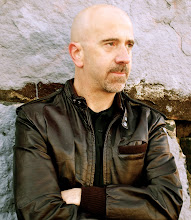September 11 is one of those watershed days in American history, an event that is so universally remembered and understood it has no need for further explanation or introduction when the subject comes up. It's not September 11, 2001, it's simply September 11. Appending the year to the date is completely unnecessary. It's like saying Pearl Harbor, Hawaii or the Watergate Hotel, where Nixon's presidency fell apart. These things are just understood.
So, like most Americans old enough to recall the horror if September 11 with any amount of clarity, I remember exactly where I was and what I was doing when American flight 11 struck the north tower at roughly quarter to nine on a beautiful, clear morning, and then when United flight 175 struck the south tower about fifteen minutes later.
I was working the Plymouth Sector at Boston Approach Control, the radar facility serving Logan International Airport, where both of the ill-fated jets departed. One of my best friends and my carpool partner was working the Initial Departure Sector and was one of the last people ever to speak to the pilots of both airplanes on an air traffic control frequency.
I remember the entire seqence of events vividly, as if it happend only yesterday, rather than nearly ten years ago. The morning was bright and clear and when the supervisor ran into the control room and announced an airplane had hit one of the WTC towers, my first thought was, Bullshit. Impossible. There is no way an airplane could have hit that huge building in these weather conditions.
My initial assumption was that someone must have detonated a bomb in the building. It even never crossed my mind that anyone would intentionally fly an airplane filled with passengers and crew into the side of a skyscraper. That seems oddly naive now, knowing what we learned about the nature of terrorism on that awful day nearly ten years ago, but it's the truth.
I kept working. At just after nine o'clock, the same supervisor came back into the control room and announced a second airplane had hit the south tower. And that was when I knew. That was when everybody knew. We were under attack from a faceless enemy with an (at the time) unknown motive. My first thought then was, Oh-oh. It's terrorism and if two planes have been taken over, how many more are out there, waiting to be flown into buildings?
We didn't have to wait long for our answer.
Soon the order came to clear the skies, an unprecedented and technically challenging task that was completed in an impressively short amount of time. The volume of traffic at Boston wasn't a whole lot busier than it would normally have been while everyone was being diverted to the closest available airport; we would have been pretty busy anyway. The only real difference that I could see was in all of the foreign call signs of the overseas flights headed to JFK that now had to land at Boston.
Before long the airspace above Boston, and everywhere else for that matter, was empty, filled only with emergency flights, law enforcement flights, and the military fighter jets dispatched to patrol over all high density areas. It was unsettling and disturbing. You could almost picture tumbleweeds blowing down a dusty road.
I worked a midnight shift that night and it was more of the same. I sat in front of an empty radar scope and watched the targets of the two fighter jets circle in wide, irregular patterns over an area from roughly Providence, Rhode Island to Portsmouth, New Hampshire. If the pilots felt the need to descend into my airspace (14,000 feet and below in roughly a thirty mile arc around Boston) to check something out, they did it, without asking and without a radar handoff. Without even talking to me.
If you know anything about ATC procedures, you know that is simply not done. But it was done on September 11 and for about two days afterward. Why not? There was nobody else in the sky.
After a couple of days, traffic began getting released ever so slowly, a trickle at first, beginning the long process of getting passengers, flight crews, and airplanes back where they belonged. Things started to get back to normal, aviation-wise.
But they never really got back to normal, at least not to what was considered normal before 8:46 a.m. on September 11, 2001.
They never will.
The continuing adventures of one man's quest to achieve publication, validation, and money-make...shun...
Saturday, September 11, 2010
Subscribe to:
Post Comments (Atom)















No comments:
Post a Comment